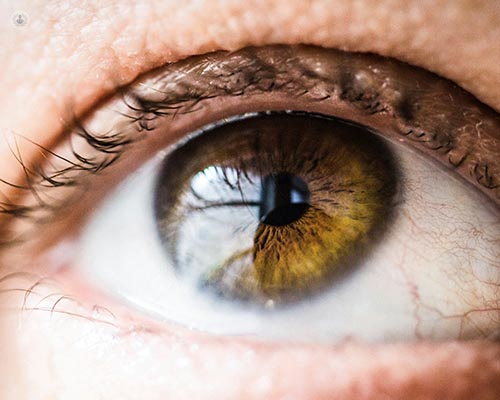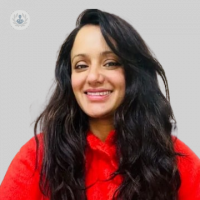How an orthoptist can help you?
Written in association with:Orthoptics plays a vital role in the realm of eye care, offering specialised assessments and treatments for a variety of vision disorders. If you're experiencing vision concerns or have been diagnosed with conditions such as strabismus or amblyopia, consulting with an orthoptist can be a crucial step towards improving your visual health. Leading orthoptist Ms Safina Rashid delves into this field of medicine.

What is orthoptics?
Orthoptics is a branch of eye care dedicated to the assessment and treatment of vision problems associated with eye movement and alignment. Orthoptists, the professionals in this field, focus on helping individuals achieve optimal eye coordination, binocular vision, and visual comfort.
What conditions do orthoptists treat?
Orthoptists are skilled in managing a range of vision disorders, including the following:
Strabismus (eye misalignment): Orthoptists specialise in addressing conditions where the eyes are not properly aligned, commonly known as strabismus. This misalignment can lead to double vision or amblyopia.
Amblyopia (lazy eye): Orthoptists play a crucial role in the treatment of amblyopia, a condition where one eye fails to develop normal vision, often due to strabismus or a significant refractive error.
Convergence insufficiency: This condition involves difficulty in maintaining proper eye alignment when focusing on near objects. Orthoptists use various assessments to diagnose and develop targeted treatment plans for convergence insufficiency.
How are orthoptic assessments conducted?
Orthoptic assessments involve a series of tests to evaluate eye movement, binocular vision, and overall visual function. These may include:
Cover test: This is a fundamental test where one eye is covered at a time to assess eye alignment.
Saccade Testing: Evaluation of the ability to make rapid, accurate eye movements between fixed points.
Stereopsis Testing: Measurement of depth perception to ensure both eyes work together seamlessly.
Prism Testing: Use of prisms to assess and treat eye misalignments.
These assessments enable orthoptists to tailor treatment plans to each individual's unique visual needs.
What is the difference between orthoptist, optometrist, and ophthalmologist?
Understanding the distinction between orthoptists, optometrists, and ophthalmologists is crucial:
An orthoptist specialises in diagnosing and managing disorders related to eye movement and coordination, while an optometrist focuses on primary eye care, prescribing corrective lenses, and managing refractive errors, and an ophthalmologist is a medical doctor who specialises in eye care, including surgery, treatment of eye diseases, and comprehensive eye examinations.
While these professionals work collaboratively, orthoptists have a specific focus on the assessment and treatment of eye movement disorders.
Can orthoptics help with reading difficulties or dyslexia?
Orthoptics can be beneficial for individuals experiencing reading difficulties or dyslexia related to vision problems. By addressing issues such as convergence insufficiency or eye-tracking difficulties, orthoptists can contribute to improved reading comfort and efficiency.
Can orthoptics prevent the need for eye surgery?
In certain cases, orthoptics can indeed prevent the need for eye surgery. Through targeted vision therapy and exercises, orthoptists aim to enhance eye coordination and address underlying issues. While surgery may be necessary in some instances, orthoptic interventions can be a valuable non-invasive option.
If you would like to book a consultation with Ms Rashid, simply visit her Top Doctors profile here today


